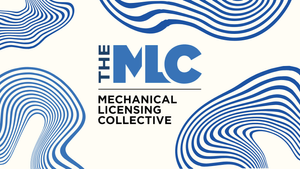The Mechanical Licensing Collective’s brilliantly named DURP project - that’s the ‘Distributor Unmatched Recordings Portal’ - now has more than a hundred independent distributors on board who are using the service to identify recordings they distribute that have “related unmatched mechanical royalties” sitting with the MLC.
The 100+ partners now using DURP to find missing money includes a whole host of distributors, aggregators and labels from the UK, with AEI, Anjunabeats, Beggars, Ditto, EmuBands, LabelWorx, Music Gateway, Ninja Tune, Routenote, Sequence, Sundesire, State51 and Warp already on board, alongside a growing number of large European-headquartered distributors, such as Believe, FUGA and IDOL.
Dae Bogan, Head of DURP at the MLC (OK, his real job title is the rather less exciting ‘Head of Third Party Partnerships’) says, “Surpassing 100 distributor partners worldwide is a testament to the value the DURP provides to independent creators and their distributors. By simplifying the process of identifying and claiming unmatched royalties, we’re helping ensure every dollar reaches its rightful owner”.
MLC head honcho Kris Ahrend adds, “The DURP is a first-of-its-kind initiative that was born out of Dae’s well-known and long-held passion for serving and empowering independent music creators”.
The MLC was set up after the US passed the Music Modernization Act in 2018, a piece of legislation that updated US copyright law to change - alongside various other things - the way streaming services and digital download stores pay mechanical royalties to songwriters and music publishers when their songs are streamed. The MLC now manages that process.
Since it was established, the MLC has created a public database of songs - or musical works, to use the technical term - where anyone can look up a song to see not only who wrote it and which music publishers are associated with it, but also recordings of the song, including each recording’s ISRC, label and which digital platforms it is available on.
Hours of fun for nerds, but also useful to help answer questions like “why would the wife of Victor Willis of the Village People be suing people for calling ‘YMCA’ a gay anthem?” Spoiler: she runs the publishing company that controls a 50% share in the song. Fun fact: there are 5845 instances of ‘YMCA’ in the MLC database - though many of those are for the same ISRC but on different platforms.
However, there is a huge - and increasing - number of music creators writing and recording songs and distributing them to digital platforms via distributors without being aware of the somewhat baroque intricacies of music publishing, metadata and so on.
Those songwriters also often slip through the net of the formal structures within the music business that would get their songs registered in the right places. As a result there are millions of dollars of mechanical royalties sitting with the MLC at any time, money paid by streaming platforms and stores for ‘unmatched works’ - songs that are not registered with the MLC, or which have not been matched to the relevant recordings.
The band HAUNTER, which discovered they had unclaimed royalties sitting with the MLC say, “As independent artists, navigating the complexities of music royalties can be overwhelming. Thanks to the MLC, we discovered mechanical royalties we didn’t even know we were entitled to”.
Songwriter and Producer Taura Stinson adds “As a self-published songwriter, I quickly discovered that the MLC is the key to accessing mechanical streaming royalties. For any independent writer looking to ensure they’re collecting what they deserve, the MLC simplifies the process and provides invaluable support”.
DURP allows distributors to get access to a sliced version of the MLC’s public database, matched against the recordings that they have distributed for their customers, which may be producing a mechanical royalties stream in the US. This allows distributors to work with their customers to ensure that songs are properly registered with the MLC, or signed up to a publishing admin service which works with the MLC.
That helps those songwriters claim mechanical royalties they might be entitled to, but also helps the MLC database be an increasingly valuable source of songwriter data for the whole industry.

